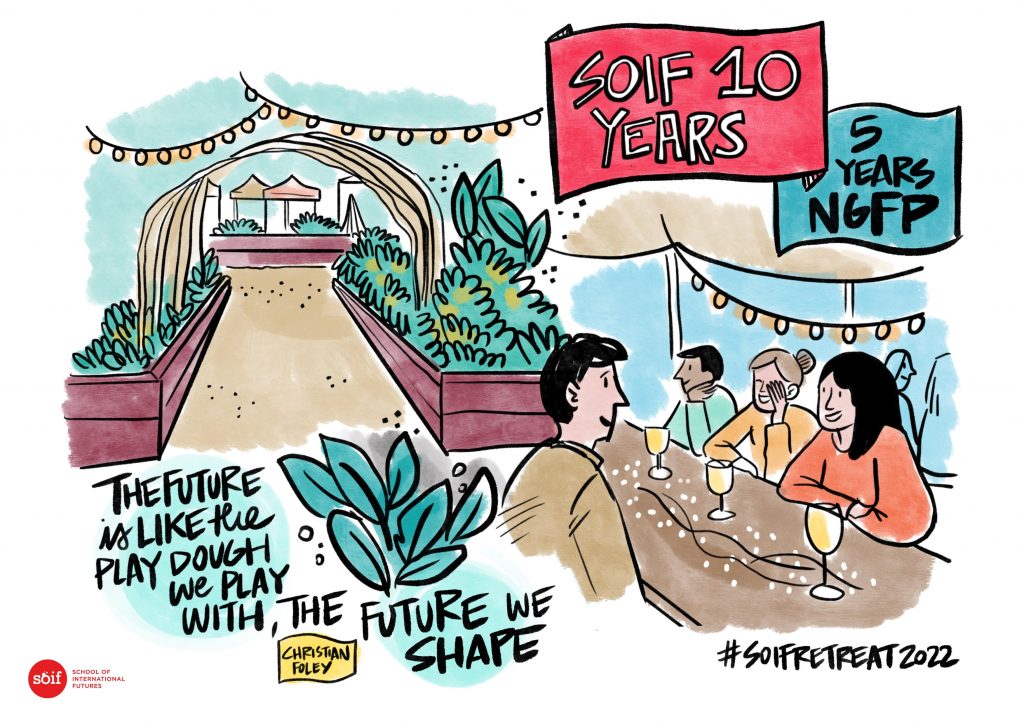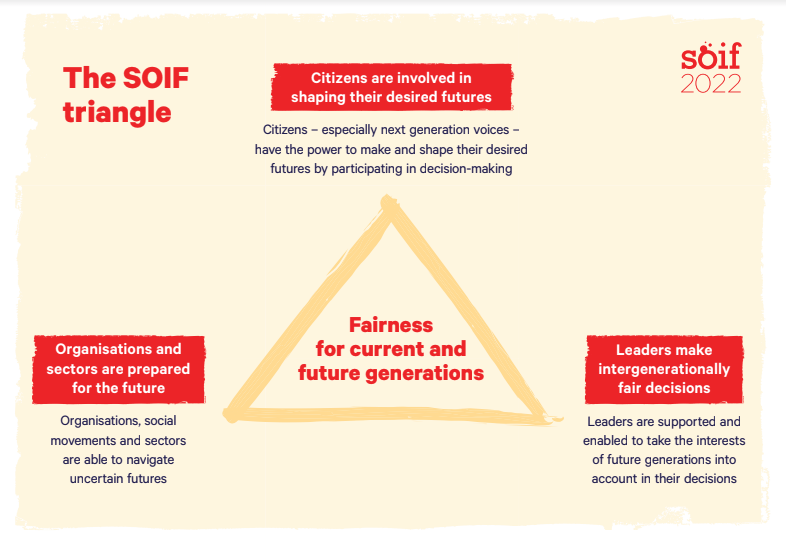SOIF celebrates its 10th anniversary this year. It is ten years since our first Summer Retreat, and we marked the occasion with an anniversary dinner in the Kitchen Garden of Lainston House, where we are running the 2022 Retreat. In fact, it is a double anniversary since it is also five years since we announced the first winners of the NGFP awards.

Some attendees at the dinner had been involved with SOIF since the beginning, notably Jane Davidson, the former Welsh government minister who pushed through the first inter-generational fairness legislation; Mat Burrows of the Atlantic Council; and the business educator Brian Chandler.
As an organisation, we have taken the opportunity of the 10th anniversary to sharpen the focus on what we do. The crises we face all around us can be summarised in a phrase: our existing systems are close to or even past the point of breakdown—and existing leaders and organisations are struggling to respond.
SOIF believes that one of the ways to address this is to help citizens make new demands of organisations, articulating both their fears about the future, and more importantly, their dreams and aspirations. We need organisations to learn how to respond to these demands by discussing the future rather than the past. We need leaders who can listen to all of this and help to articulate it in a way that serves the interests of people and planet.
We’ve summarised this in a diagram which we’ve been calling—catchily—‘the SOIF triangle’.

Looking back across the ten years, two things have had most impact so far. The first is our work on intergenerational fairness, which is an essential ingredient of a better and fairer future. The second is the Next Generation Foresight Practitioners Awards, which have now developed into a platform of globally aware young activists, which is also starting to have a collective voice, as we saw in their work last year on Digital Africa.
One of the positive signs of change we’ve seen over the last couple of years is that the organisations we work with are increasingly interested in learning how to build their capability for futures and foresight work. It’s the only way we will be able to scale the response we need to our emerging crises. And ten years after the first Retreat, this feels like a golden thread that’s run through all of our work.
